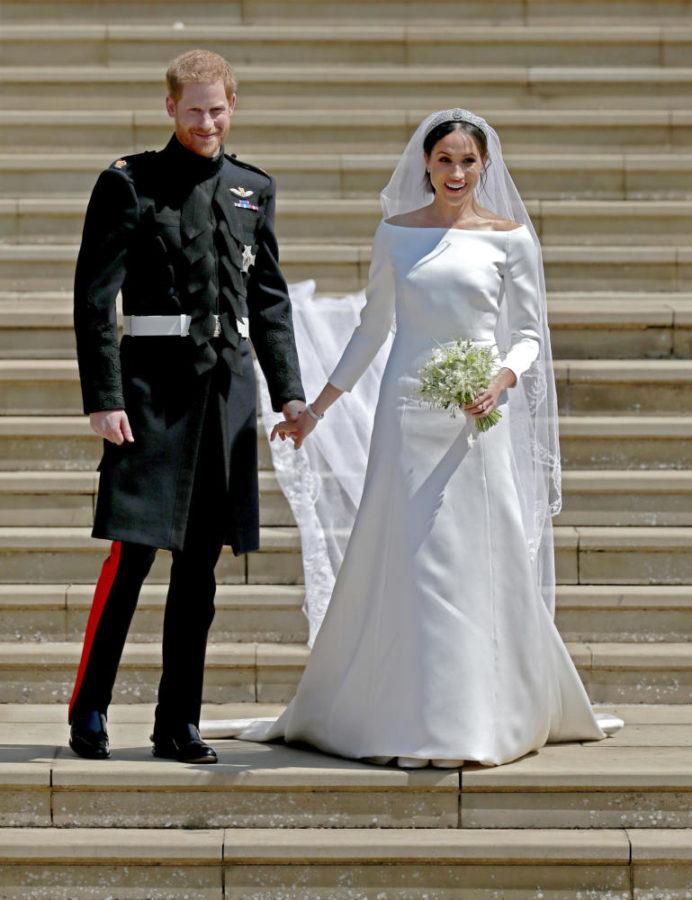American actress Meghan Markle’s marriage to the British Prince Harry featured celebrity guests, beautiful decor and a well-dressed, smitten couple — staples of any royal wedding. But when Markle walked herself down the aisle May 19, viewers around the world knew something was different this time.
Perhaps the most striking difference from past royal weddings was the bride — a biracial American. A black preacher wed her to the white prince, and the ceremony featured a black choir singing “This Little Light of Mine” — a gospel connected to the American civil rights movement.
Many people saw the marriage as groundbreaking — a woman of color married the man sixth in line to the British throne. With Britain’s long history of white imperialism — and the prestige that continues to surround its rulers — the marriage was hailed as a step forward in racial parity for the British people.
But this is far from the truth. Viewing Markle joining the ranks of the British royals as progressive only reinforces the notion that whiteness is the standard to which British people of color should aspire. It ignores the racism in the Western world that can’t be fixed by one marriage. And celebrating Markle’s race causes people to overlook that the monarchical institution she is entering is still largely closed off to people of color.
The buzz surrounding Markle’s race demonstrates how whiteness in the monarchy — and by extension Britain — is the norm. And the idea that she is “breaking barriers” reinforces the outlook that the power and privilege associated with the majority-white royal family is rightly supreme. It implies she has achieved something for managing to “rise” to their status.
In Britain, 1.8 million black people still face unemployment and poverty in far higher numbers than the over 51 million white Britons. 15.5 percent of black Britons faced unemployment compared to 6.3 percent of white people in 2012-13, and 15.7 percent of black people lived in overcrowded housing compared to 3.4 percent of white people. Markle herself may be able to encourage small changes in Britain’s culture at large, but she alone isn’t enough to make significant change.
Heralding the interracial royal wedding as a tool for combating racism ignores the fact that the royal family as an institution holds the British seat of power away from people of color. The United Kingdom’s head of state will likely remain white due to the hereditary system of the royal family. Crown Prince William’s children with Kate Middleton may one day ascend the throne — but because Harry isn’t a Crown Prince, his offspring becoming rulers is unlikely.
This does not suggest that the royal family itself is racist, but the way in which the head of state is chosen reflects institutional racism. The path to the throne is still closed off to people of color, and even if it weren’t, it wouldn’t be a solution.
Markle and Prince Harry appear to be very much in love — that much was evident at the Royal Wedding. But Saturday’s pomp should not be hailed as a sign that racial tensions in the U.K. are over. The issues minorities face are still present — and it will take more than a biracial royal to fix them.



